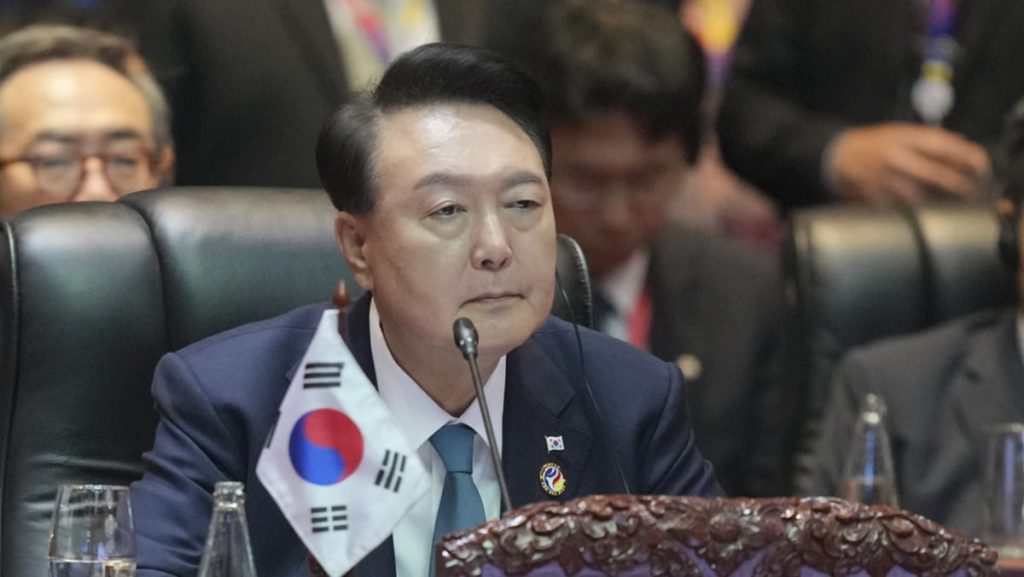The dramatic arrest of South Korean President Yoon Suk Yeol marks an unprecedented chapter in the nation’s political history. Yoon, a 64-year-old political figure with a background as a prominent prosecutor, became the first sitting president to be taken into custody after a weeks-long standoff with authorities investigating allegations of insurrection. This stunning turn of events represents the culmination of a tumultuous period marked by personal scandals, fierce opposition, and internal party divisions that have gradually eroded Yoon’s political standing since his narrow victory in the 2022 presidential election. His defiance and eventual surrender highlight the complex interplay of legal and political pressures that have characterized his presidency.
Yoon’s journey from celebrated prosecutor to embattled president has been marked by a series of controversies. His legal expertise, which initially propelled him into the public spotlight and garnered significant support during his election campaign, now stands in stark contrast to his current legal predicament. Accused of insurrection, a charge from which South Korean presidents are not immune, Yoon faces multiple criminal investigations, including one led by the Corruption Investigation Office for High-Ranking Officials (CIO). This dramatic shift from legal enforcer to the subject of a high-profile investigation underscores the volatile nature of South Korean politics and the precarious position Yoon now occupies.
The seeds of Yoon’s current crisis were sown early in his presidency. He struggled to navigate the complexities of political leadership, facing constant opposition and internal dissent that exacerbated his already combative political style. This, coupled with a string of personal scandals, chipped away at his public image and weakened his political capital. By the time he declared martial law in December, a move that shocked the nation, Yoon was already deeply embattled. The subsequent impeachment by parliament further marginalized him, leaving him suspended from his duties and facing an uncertain future.
Yoon’s decision to impose martial law, a drastic measure that underscored the escalating political tension, can be seen as a pivotal moment in his downfall. The move was widely condemned and triggered a swift response from the parliament, leading to his impeachment. This act, intended perhaps to consolidate power and quell dissent, ultimately backfired, accelerating his decline and setting the stage for his eventual arrest. The imposition of martial law highlighted what critics describe as Yoon’s recklessness, a characteristic that has seemingly defined his political trajectory.
The weeks leading up to Yoon’s arrest were marked by a tense standoff with authorities. Holed up in his fortified residence, he refused to comply with what he deemed an illegal arrest warrant issued by the CIO. This act of defiance, while potentially galvanizing some supporters, further isolated him politically and legally. He portrayed himself as a defender against “anti-state forces,” urging his followers to join his fight. This rhetoric, however, failed to resonate broadly, and he ultimately chose to surrender to avoid further escalation and potential bloodshed.
Yoon’s arrest represents a significant moment in South Korean politics, raising questions about the future of his presidency and the country’s political stability. With his fate now in the hands of the Constitutional Court and multiple criminal investigations looming, Yoon faces a formidable legal battle. His political career, once so promising, now hangs precariously in the balance. The outcome of these legal proceedings will undoubtedly shape the political landscape of South Korea and determine the legacy of a president whose time in office has been defined by controversy and conflict. The nation now awaits the court’s decision, a verdict that will determine the final chapter of Yoon Suk Yeol’s tumultuous presidency.

